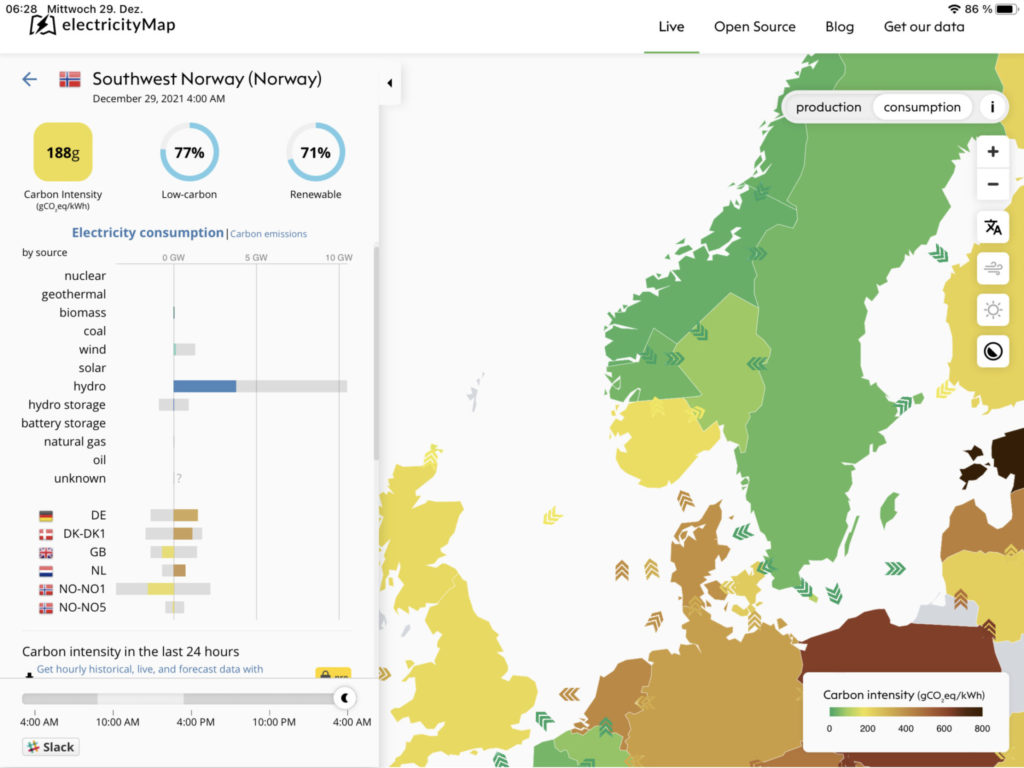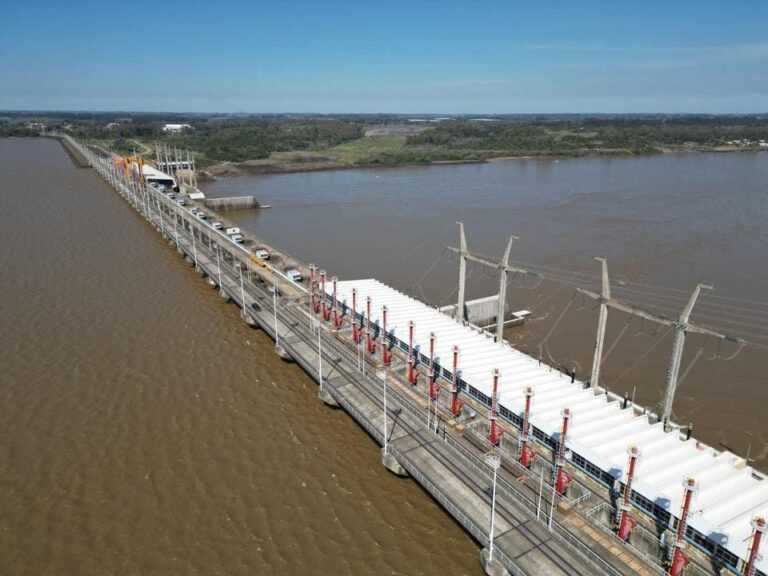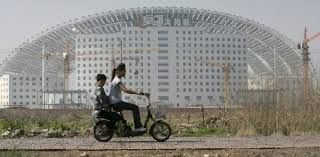
Opinion by Chairman of the Board at Motvind, Eivind Salen
It is depressing to see the statistics on Statkraft.no and Electricity map and NVE.no, and all the other Norwegian and international pages about power production, power production, and power exchange. Norway now has the most expensive power prices in Europe. The electricity companies in Denmark, Germany, and the Netherlands export their power to Norway since they can sell it more expensive here.
As you can see from the color codes, it is by no means pure, green power, but dirty and brown, so that with the most expensive power in Europe we also get a carbon footprint of 188 g per kWh. The power companies and power customers abroad make money from the fact that they have previously been able to buy Norwegian power cheaper, and can now sell their power more expensively. It is Norwegian electricity customers who lose, we who before could buy our own power cheaply, now buy foreign power expensively.
Power exchange vs export
Power exchange is quite wise. In Norway, we are self-sufficient with green hydropower. If we are just a little extra frugal in difficult years, then we would have managed our energy needs without problems. In 9 out of 10 years, we have a comfortable surplus of approximately 10 TWh based on hydropower alone. With simple measures such as energy efficiency in public buildings and upgrading of old hydropower plants, we would get further profits.
In the old system, we exchanged power with the other Nordic countries, where Sweden also has a lot of hydropower, but where they have also developed some nuclear power and some gas and oil, to stabilize the power supply in special years, where there is little inflow of water in the reservoirs. Security of supply in Norway has been guaranteed since the third international cable to Denmark in 1993 [just where Apple decided to build its European datacenter due to the green energy from Norway (!)].
This has given us a competitive advantage in the industry and has been absolutely crucial in our efforts and success in building one of the very, very best welfare societies in the whole world. Due to cheap access to the basic product; energy, we have been able to combine high wages with good competitiveness.
Market-driven
From 1990 the power supply was not politically controlled anymore, it was left for the market to control.
The development has been instructive, to put it in an appropriate, non-adequate word. The market-driven energy policy, have over the years recruited people to the energy companies who think only about market and money, earnings, and profitability, and who completely forget the power companies’ real goal: To supply society with cheap, predictable, stable electric power for the god of all of society.
We had this. Now it’s given away. We have replaced the old system of power exchange for the security of supply with power export for profitability. Electric power has become a commodity, where it used to be basic goods and the foundation of the welfare state.
It is this greed that has now gotten us to where we are now. That is why Norwegian energy policy must change.




47 Comments
Pingback: Norwegian hydropower is a unique National Comparative Advantage that market fundamentalism is about to destroy - Bergensia
Pingback: Motvind Norge reports the management and owners of the Storheia and Roan wind power plants in Fosen - Bergensia
Pingback: december morning jazz
Pingback: EAP
Pingback: แทงหวยออนไลน์
Pingback: รับสร้างบ้านเชียงใหม่
Pingback: นามบัตรด่วน
Pingback: เครื่องซีลสูญญากาศ
Pingback: Sylfirm
Pingback: wing888
Pingback: สำนักงานบัญชี ภูเก็ต
Pingback: how to get free tokens on cams
Pingback: sex women
Pingback: lnw69
Pingback: interior painters Calgary
Pingback: ของเล่นสนาม
Pingback: Cannabis
Pingback: hit789
Pingback: Mostbet
Pingback: เล่น TikTok ยังไงให้รวย
Pingback: หวยลาว บาทละ100 และ หวย 3 ตัว 1000
Pingback: เซรั่มหอมแดง
Pingback: 1xbet
Pingback: เครื่องเป่าแอลกอฮอล์
Pingback: เช่ารถเครน
Pingback: จัดงานศพครบวงจร
Pingback: ฆอ
Pingback: เครื่องเป่าแอลกอฮอล์
Pingback: click
Pingback: Thai Massage Manhattan
Pingback: Urzędnik w Polsce
Pingback: essentials
Pingback: ลิควิดคลอลาเจนนํ้าสวีเดน
Pingback: try to play Aviator
Pingback: เว็บปั้มไลค์
Pingback: หนองใน
Pingback: รับสกรีนเสื้อ
Pingback: y8
Pingback: จอสัมผัสอัจฉริยะ
Pingback: เอเจนซี่ศัลยกรรมจีน
Pingback: โบลเวอร์ kruger
Pingback: สรุปเว็บสล็อตยอดนิยม slot thailand
Pingback: เว็บสล็อต
Pingback: เว็บพนันออนไลน์เกาหลี
Pingback: ดูหนังออนไลน์ฟรี
Pingback: Lawfirm in bangkok
Pingback: รับปริ้น 3d